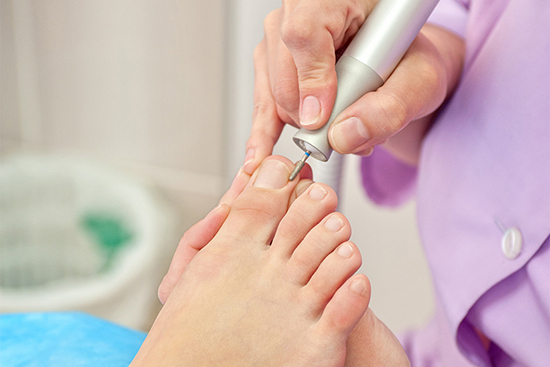Diabetes Foot Care
Diabetes foot care is vital. Persons suffering from diabetes need to be extra careful with their feet. Infections of diabetic feet can be most serious, in some cases requiring amputation of the feet. People with diabetes tend to heal more slowly from cuts, sores and wounds, because the body’s processes that fight infection tend to respond more slowly. Moreover, diabetics – and the aged – often have poor blood circulation and this slows down the healing process even further. As poor blood circulation affects those parts of the body farthest from the heart, the feet are the most prone to be affected. This is why diabetes foot care is particularly important. In addition, diabetes can cause nerve damage in the feet, and such damage often go undetected. Diabetes can also affect the joints, making them stiffer. Other complications that may arise from diabetes include kidney disease, which affects proteins that are involved in wound healing, and failing eyesight which prevents the diabetic patient from checking for foot problems.
Because these are serious conditions, diabetes foot care is best left in the hands of foot care professionals, such as chiropodists and podiatrists. If you have diabetes, consult your chiropodist / podiatrist for the care of corns, calluses, in-grown toe nails and other foot problems.

Take heed of your chiropodist’s / podiatrist’s advice. Do not attempt self-diabetes foot care at home. A number of things can go wrong and this may worsen the infection. This is because of nerve damage, the diabetes sufferer may wound themselves (while cutting toenails, scratching, and so on) without realising it.
Nerve damage can also cause numbness of the feet. But because the feet feel little or no sensation, you may continue to walk and exert pressure on the affected area, causing further damage to the joints.
Foot ulcers are a common complication due to diabetic foot. Such ulcers are often caused by excessive pressure on an area, which results in the skin breaking down. They often occur under corns and calluses. It normally takes a while for diabetic foot ulcers to heal. Proper diabetes foot care by a chiropodist / podiatrist will involve easing pressure from the affected area and using good wound dressings. This will speed up the healing process as well as prevent the condition from worsening.
Sports Foot Care
Playing sport regularly is a great thing: it’s enjoyable, good for our health, our mind and recommended by medical professionals everywhere. However, exercise can have a distinctly unhealthy effect on our feet. When we run, our body weight is multiplied up to three times, with our feet bearing the brunt of this stress at every stride (over 1,000 strides per mile, per foot). An average-sized man will process 112 tons of weight through each limb per mile. Sport demands a lot of our feet, so we need to take extra care of them.
Looking after your feet with regular visits to a chiropodist can dramatically improve mobility, circulation / improve blood supply and maintain fit, active pain free feet. We cater for all ages and requirements.

A Chiropody appointment will include an examination of the feet and treatment of:
- Hard Skin
- Calluses
- Verrucae
- Corns
- Fungal infections of the Skin / Nails
- Thickened nails
- Cracked heels
- Ingrown nails
- Wounds

